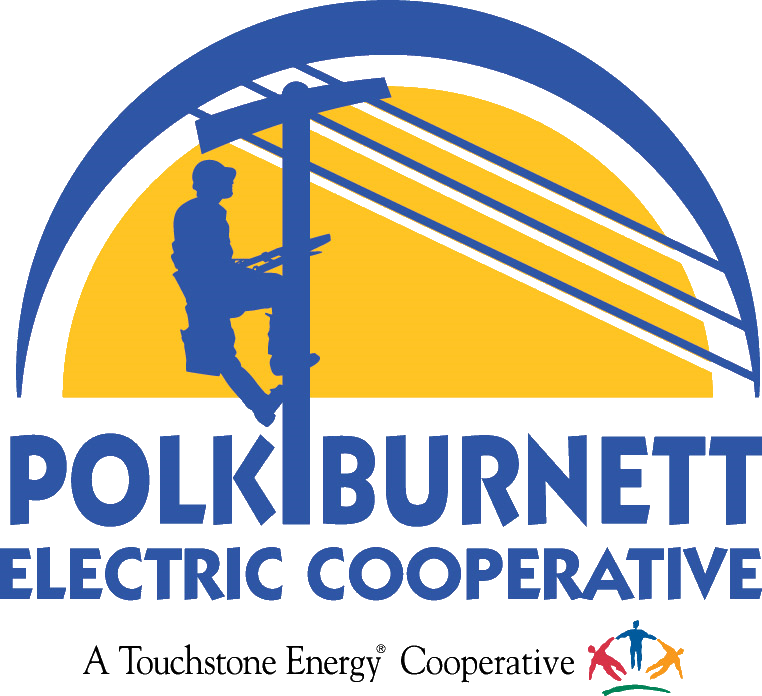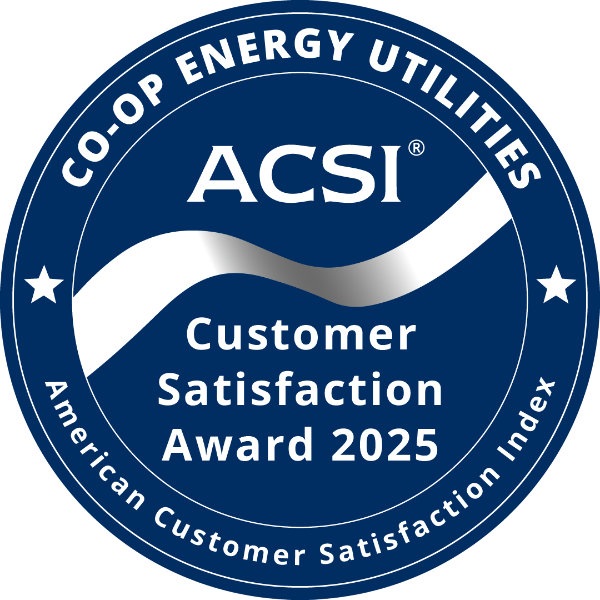 Capital Credits, cash back for co-op members
Capital Credits, cash back for co-op members
Watch for annual Capital Credit distribution every fall!
Instead of returning money to distant shareholders, Polk-Burnett Electric Cooperative returns Capital Credits to the local people we serve. Revenue left after expenses is allocated and returned to members.
Fall 2025 - $1.85 million to members who purchased electricity in 2002, 2003 and/or 2022
Capital Credit retirements over the past few years
Fall 2024 - $1.65 million to members who purchased electricity in 2001, 2002, 2003 and/or 2021
Fall 2023 - $1.58 million to members who purchased electricity in 1999-2002 and/or 2020
Fall 2022 - $2.28 million to members who purchased electricity in 1997-99, 2001, 2002 and/or 2019.
Spring 2022 - $1 million to all members who purchased electricity in 2021 (special distribution).
Fall 2021 - $1.5 million to members who purchased electricity in 1995-1997, 2000, 2001 and/or 2018.
Fall 2020 - $1.45 million to members who purchased electricity in 1992-1995, 1999, 2000 and/or 2017.
Fall 2019 - $1.1 million to members who purchased electricity in 1991-1992, 1996-1997, 1999 and/or 2016.
Capital Credits help fund co-op scholarships
Polk-Burnett's scholarship program is funded with unclaimed Capital Credit dollars that otherwise would be forfeited to the state, and by the generosity of co-op members who donate Capital Credits to the scholarship fund.
Donate your future Capital Credits to the co-op's scholarship and Youth Tour program.
Capital Credits Q&A
Capital Credits are a direct benefit of your cooperative membership.
Instead of returning profits to investors and distant stockholders, Polk-Burnett returns Capital Credits to the local members we serve.
As a co-op, Polk-Burnett operates at cost. Any revenue left after annual expenses is allocated and returned to members as Capital Credits.
Capital Credits are allocated and distributed annually, based on the amount of electricity you purchase.
Polk-Burnett returns Capital Credits to members each year. Active members will receive a credit on November electric bills. Former members will be mailed a check of $25 or more; lesser amounts will be left to accrue for future payouts.
Capital Credits are based on your total payments to the cooperative for kilowatt-hours of energy purchased, including the fixed charges. If you receive a smaller credit than your neighbor, it's because you used and paid for less electricity during the period in which the Capital Credit allocation was earned.
Allocated Capital Credits appear as an entry on the permanent financial records of the cooperative and reflect each member’s equity or ownership in Polk-Burnett Electric Cooperative. When a portion of your Capital Credits are retired by the board of directors, a check or bill credit is issued to the member and the member’s equity in the cooperative is reduced.
The Capital Credit distribution cycle is determined by the board of directors. Even if you don't receive a return this year, you will earn a Capital Credit allocation for all years that you are a Polk-Burnett member. Once you're eligible for a distribution on those allocations, you'll receive it even if you're no longer receiving electric service from Polk-Burnett, so it is important to make sure Polk-Burnett always has your current mailing address.
A check will be mailed to you if we have your current mailing address. The minimum distribution to inactive members is $25. Distributions that do not meet the minimum will be held on inactive electric accounts and distributed by check when the retired amount meets the $25 minimum.
Polk-Burnett was required to give unclaimed Capital Credits to the State of Wisconsin prior to 1987. Now we can use these unclaimed funds for education and we are proud to offer continuing education scholarships to the children of our members. Polk-Burnett's scholarship program is based on community service and recognizes graduating seniors who make a difference in the lives of others. Read more about Polk-Burnett's Community Service Scholarship Program.
Capital Credits are allocated to members annually and reinvested back into the cooperative to purchase new equipment and build new infrastructure. The board carefully sets the amount to return to members each year. If all Capital Credits were given back immediately, the board would have to increase rates to replace those funds.
The cooperative started in 1938, but didn’t return the first Capital Credits until 1964 (26 years later). The retirement rotation helps the cooperative achieve a responsible level of equity, while keeping rates as low as possible. Shortening the retirement period of Capital Credits would require raising rates.
The Capital Credits of a deceased member may be paid to a beneficiary without waiting for a general retirement. These estate payments are not automatic, and the proper paperwork will need to be completed to determine how the funds will be received. Most beneficiaries opt for a lump sum payout, which will be discounted due to earlier payout. A representative of the estate must request the credits and then complete the Capital Credit Application. They will need an original certified copy of the death certificate of the deceased and a Domiciliary Letter or Wisconsin Transfer by Affidavit. You can apply for an estate payment of Capital Credits at any one of our offices or by contacting the billing department at 800-421-0283, extension 335.
Capital Credits are a direct benefit of your co-op membership. Any revenue left after annual expenses is allocated and returned to members, according to our cooperative business principles.
Steve Stroshane, general manager

